- Home
- Gustave Aimard
The Guide of the Desert Page 2
The Guide of the Desert Read online
Page 2
CHAPTER II.
THE GAUCHO.
The Indians stopped within gunshot of the spot where the gaucho andI were concealed; they appeared to be consulting amongst themselvesbefore commencing the attack.
These Indians, thus grouped, formed in the midst of the arid desert,of which they were the veritable kings, a most singular and at thesame time a most picturesque tableau, with their noble and animatedgestures, their tall and elegant figures, their well-proportionedlimbs, and their ferocious appearance.
Half-clothed with ponchos in rags, and with pieces of frazada, fastenedby leathern strings round their bodies, they brandished their longlances, garnished with iron blades, and ornamented near the points withtufts of ostrich feathers.
Their chief, still young, had great black eyes veiled by long blackeyelashes; his high cheekbones, surrounded by a mass of sleek andflowing hair, fastened on the forehead by a narrow band of red wool;his mouth, large and furnished with brilliant white teeth, whichcontrasted with the red hue of his skin, impressed on his physiognomythe stamp of remarkable vigour and intelligence. Although he knew thathe was but a little distance from the spot where the gaucho was inambuscade, and that consequently he was exposed to the danger of beingstruck by a ball, nevertheless, openly exposing himself to the attackof his enemy, he affected a carelessness and a contempt for the perilby which he was threatened, which was not wanting in grandeur.
After a tolerably long discussion, the chief urged his horse forward,and advanced without hesitation towards the rock.
Arrived at about ten paces from it, he stopped, and supporting himselfcarelessly on the long lance which he held in his hand:
"Why does the white huntsman earth himself like a timid viscacha?" saidhe, elevating his voice and addressing the gaucho; "The Aucas warriorsare before him: let him come out from his ambuscade, and let him showthat he is not a frightened and babbling old woman, but a brave man."
The chief waited an instant; then he resumed in a mocking voice:
"Come, my warriors are deceived, they thought to have unearthed a boldjaguar, and it is but a dog returning from the pampa that they areabout to attack."
The eye of the gaucho flashed at the insult; he applied his finger tothe trigger, and the charge flew.
But, sudden and unexpected as had been his movement, the wily Indianhad foreseen it, or rather had guessed it; he threw himself rapidly onone side, there bounding in advance with the elasticity and certaintyof a wild beast, he alighted in front of the gaucho, with whom heclosed.
The two men rolled on the ground, grappling each other with fury.
Meanwhile, at the sound of the shot, the Indians had uttered their warcry, and had darted forward with the design of supporting their chief.
The gaucho seemed, therefore, doomed. If even he could have succeededin overcoming the chief against whom he was fighting, he wouldevidently have had to succumb to the attack of ten Indians.
At that moment I do not know what revulsion of feeling seized me. Iforgot the danger to which I exposed myself in discovering my retreat,and instinctively putting the gun to my shoulder I fired my two shots,followed immediately by the explosion of two pistols and darting frommy retreat, my two other pistols in hand, I discharged them close tothe breasts of the horsemen, who came down upon me like a thunderbolt.
The Indians, surprised and frightened by this fusillade, which theycould not foresee, since they believed they had but a single adversaryto fight, turned about and escaped in every direction, uttering criesof fright, abandoning not only their chief, who was occupied withdefending himself against the gaucho, but also the corpses of four oftheir companions, struck by my balls. While I was loading my gun, I sawtwo other Indians fall from their horses.
Certain of not having anything more to fear in that direction, I rantowards the gaucho in order to render him assistance, if it werenecessary, but at the moment I reached him the blade of his knifeentirely disappeared in the throat of the Indian chief.
The latter expired, his eye fixed on his enemy, without trying even toward off the blow.
The gaucho withdrew his knife from the wound, plunged its blade severaltimes in the earth, to cleanse it from the blood with which it wassoiled, then quietly replacing his knife in his chirapa, he rose andturned towards me.
His countenance had not changed; he still preserved that expression ofcold impassability and of implacable courage that I had at first seenin him; only his face was more pale, and some drops of perspirationstood like pearls on his temples.
"Thank you, caballero," said he to me, holding out his hand; "to therevenging charge! iVive Dios! It was time that you came. Without yourbrave assistance I avow I should have been a dead man."
These words had been uttered in Spanish, but with an accent whichdenoted a foreign origin.
"I had arrived before you," I answered, "or rather had passed the nightat a few paces only from the spot where chance so fortunately led me."
"Chance," he replied, gently shaking his head, "chance is a wordinvented by the strong minds of towns. We of the desert ignore it. Itis God only, who desiring to save me, led me to you."
I bowed affirmatively. This man appeared to me still greater at thatmoment, with his simple faith and genuine humility, than when he waspreparing to fight singly against ten men.
"Besides," added he, speaking to himself, "I knew that God wouldnot allow me to fall today. Every man in this world has a task toaccomplish. I have not yet fulfilled mine. But pardon," said he to me,changing his tone, and trying to smile, "I am saying to you now wordswhich must appear, without doubt, very strange, especially at thismoment, when we have to think of things more important than to commencea philosophic discussion. Let us see what has become of our enemies?Although we may be two resolute men now, if the desire of returningseizes them we should be hard put to it to rid ourselves of them."
And without waiting for any answer, he left the wood, taking at thesame time the precaution to reload his gun as he walked.
I followed him in silence, not knowing what to think of the strangecompanion whom I had so singularly found, and asking myself who thisman could be who, by his manner, his language, and the turn of hismind, appeared so much above the position which the clothes he wore,and the place where he was, appeared to assign to him.
The gaucho, after assuring himself that the Indians remaining on thebattlefield were dead, ascended a tolerably elevated hill, scanned thehorizon on all sides for a considerable time, and then returned towardsme, holding a cigarette between his fingers.
"We have nothing to fear at present," said he to me. "However, I thinkwe shall act prudently in not remaining here any longer. Which way areyou going?"
"Upon my word," I answered him frankly, "I avow that I do not know."Notwithstanding his apparent coolness, he allowed a gesture of surpriseto escape him.
"What!" said he, "You do not know?"
"No! Strange as it may appear to you, it is so. I know not where I am,nor where I am going."
"Come, come; that's a joke, is it not? For some motive or other you donot wish--which shows your prudence--to acquaint me with the object ofyour travel; but it is impossible that you do not really know in whatspot you are, and the place to which you are going."
"I repeat to you, caballero, that what I tell you is true. I have nomotive for concealing the object of my travel; I am merely wandering onaccount of the unfaithfulness of a guide whom I had engaged, and whoabandoned me some days ago."
He reflected an instant, then taking me cordially by the hand:
"Pardon me the absurd suspicions of which I am ashamed," said he, "butthe situation in which I find myself must be my excuse; let us mountour horses, and get away from here. While we are on the road, we cantalk; I hope soon you will know me better."
"I need not know you more," I replied; "from the first moment I feltmyself attached to you."
"Thank you," said he, smiling. "To horse, to horse! We have a longjourney to make."
Five minut
es later we were galloping away, leaving to the vulturesthat already wheeled in large circles above our heads with harsh anddiscordant cries, the corpses of the Indians killed during the combat.
While we were proceeding, I related to the gaucho my life andadventures, as far as I thought necessary he should know. This recitalpleased him by its singularity.
It was easy to perceive that, notwithstanding the brusque and sometimeseven harsh manner he affected, this man possessed a profound knowledgeof the human heart, and great practical knowledge of life; and thathe had for a long time frequented not only the best American society,but also visited Europe with advantage, and seen the world under itsmost varied phases. His elevated thoughts, always characterised bynobility of mind, his good sense, his lively, vigorous, and attractiveconversation, interested me in him more and more; and although he keptthe most complete silence as regards his personal circumstances, andhad not even told me his name, I nevertheless felt the sentiment ofsympathy with which he had at first inspired me continually increasing.
We passed the whole day laughing and talking, at the same time rapidlyadvancing towards the rancho where we were to pass the night.
"Look," said the gaucho to me, pointing out a slight column of smoke,which was ascending spirally towards the sky; "that is where we aregoing, and in a quarter of an hour we shall be there."
"Thank God," I answered, "for I begin to feel fatigued."
"Yes," said he to me, "you have not yet become used to long journeys;but patience, in a few days you will think nothing of it."
"I hope so."
"By-the-bye," said he, as if the thought suddenly occurred to him, "youhave not yet told me the name of the picaro who abandoned you."
"Robbing me of a gun, a sabre, and a horse--things for which I haveceased to grieve."
"How is that?"
"Why, because it is probable that the bribon will not bring them backto me."
"You are wrong to think that; although the desert may be large, arascal cannot so easily conceal himself there as you think."
"What good would it do to find him?"
"You do not know what may happen; perhaps someday I shall come acrosshim."
"That is true; they call him, in Buenos Aires, Pigacha, but his realname among his own people is the Venado; he is blind of the right eye.I hope that is sufficient description," I added.
"I believe so," answered he; "and I promise you if I meet him I shallrecognise him. But here we are."
In fact, at twenty paces before me appeared a rancho, the completeoutline of which the first shades of night prevented me from makingout, but the sight of which, after a fatiguing day, and especiallyafter the wild life to which I had been so long condemned, rejoiced myheart in giving rise to the hope of that frank and cordial hospitalitywhich is never refused in the pampa.
Already the dogs hailed our arrival with their deafening bark, andleaped furiously around our horses. We were obliged to give them ataste of the whip, and soon our horses stopped before the entrance tothe rancho, where a man was standing with a lighted torch in one hand,and a gun in the other. This man was tall, with bold features, and abronzed complexion lit up by the ruddy reflection of the torch whichhe held above his head gave me a good idea, with his athletic form andwild appearance, of the true gaucho of the pampas. On perceiving mycompanion, he bowed deferentially.
"I hail you, most pure Mary," he said.
"Conceived without sin."
"Can we enter, Don Torribio?"
"Enter, Senor Don Zeno Cabral; this house and all it contains belongsto you."
We dismounted without asking anything further, and after a young manof eighteen or twenty, half-naked, who had run out at the call of hismaster or father--I did not get to know which--had taken the bridle ofour horses and had led them away, we entered, followed by the dogs whohad so noisily announced our arrival, and who, instead of being hostileto us, leaped around us with signs of pleasure.
This habitation, like all those of the gauchos, was a hut of earthintermingled with reeds, covered with straw; constructed, in fact, withall the primitive simplicity of the desert.
A bed formed of four stakes driven into the earth, supporting a hurdleof reed or strip of leather interlaced, on which was placed, like aEuropean mattress, the untanned skin of an ox; some other hides laidon the floor near the wall for the children's beds, some bolas, somelazos, the indispensable arms of the gauchos, some horses' harness hungfrom stakes of wood pierced in the wall of the rancho, formed the onlyfurniture of the inner room.
As to the first room, its furniture was simpler still, if possible;it was composed of a hurdle of reeds, supported by six stakes, andserving for a sofa, the heads of two oxen in the place of an armchair,a little barrel of water, a brass kettle, some gourds serving fordrinking vessels, a wooden bowl, and an iron spit stuck verticallybefore the fireplace, which was in the very middle of the apartment.
We have described this rancho thus minutely, because all resemble oneanother in the pampa, and are, so to speak, constructed on the samemodel.
Only, as this one belonged to a comparatively rich man, apart from themain building, and at about twenty yards' distance, there was anotherused as a magazine for the hides and the meats that were to be dried,and surrounded by a tolerably extensive hedge about three yards high,forming the corral, behind which the horses were sheltered.
The honours of the rancho were done for us by two ladies, whom thegaucho introduced to us as his wife and daughter.
The latter, about fifteen years of age, was tall, well made, andendowed with a rather uncommon beauty; she was named Eva, as Iafterwards learned; her mother, though still young--she was at the mostthirty years of age--had now only the fugitive remains of a beautywhich had been very remarkable once.
My companion appeared to be an intimate friend of the ranchero and hisfamily, by whom he was received with signs of the utmost pleasure,moderated by a cloud of respect and almost fear.
On his side, don Zeno Cabral--for I at last knew his name--actedtowards them with patronising unceremoniousness.
The reception was what it ought to be, that is to say, most frank andcordial. These honest people only studied to be agreeable to us; theleast thanks on our part filled them with joy.
Our repast, which we ate with a good appetite, was composed as usual ofthe asado, or roast beef, of goya cheese, and of harina, or the flourof mandioca the whole moistened by some libations of cana or sugarbrandy, which, under the name of traguitos, little draughts, circulatedfreely, and finished by putting us in good humour.
As a compliment to this repast, much more comfortable than doubtlessthe European reader will suppose, when our cigarettes were lighted,dona Eva took down a guitar, and after having presented it to herfather, who, smoking all the while, commenced to prelude with hisfour fingers united, she danced before us with that grace and thatelasticity which only belong to the women of South America, a cielito,followed immediately by a montonera. Then the young man, of whom I havealready had occasion to speak, and who was not the servant but the sonof the ranchero, sang with a fresh, full, musical voice, and with anexpression which went to our hearts.
A strange incident then occurred, the meaning of which I could notunderstand. Don Quino, the young man, sang with inexpressible passionthese charming verses of Quintana:--
Feliz aquel que junto a ti suspira, Que el dulce nectar de tu risa bebe. Que a demandarte compasion se atreve, Y blandamente palpitar te mira.[1]
Suddenly don Zeno became pale as death, a nervous trembling agitatedhis whole body, and two burning tears burst from his eyes; however,he kept the most profound silence, but the young man perceiving theeffect produced upon their guest by the verses which he was singing,immediately struck up a joyous jarana, which soon brought back thesmile on the pale lips of the gaucho.
[1] Happy he who sighs near thee, who drinks the sweet nectar of thysmile, who dares to ask pity of thee, and sees thee gently agitated.

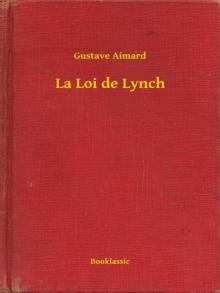 La loi de lynch. English
La loi de lynch. English The Guide of the Desert
The Guide of the Desert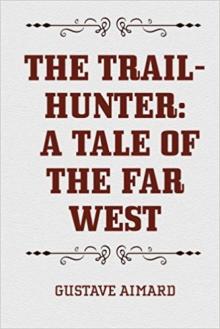 The Trail-Hunter: A Tale of the Far West
The Trail-Hunter: A Tale of the Far West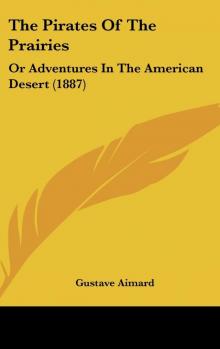 The Pirates of the Prairies: Adventures in the American Desert
The Pirates of the Prairies: Adventures in the American Desert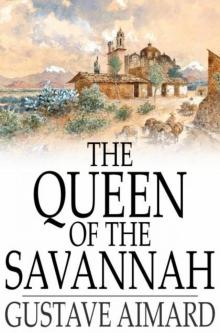 The Treasure of Pearls: A Romance of Adventures in California
The Treasure of Pearls: A Romance of Adventures in California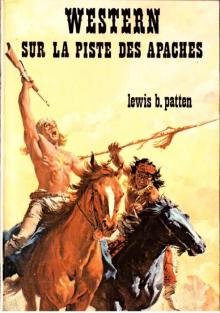 Les outlaws du Missouri. English
Les outlaws du Missouri. English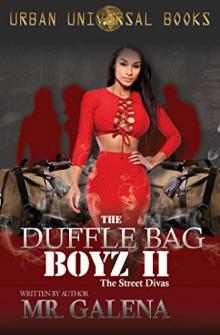 Les trappeurs de l'Arkansas. English
Les trappeurs de l'Arkansas. English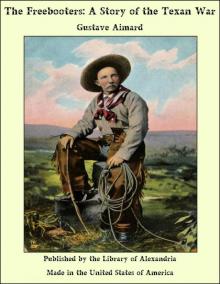 The Border Rifles: A Tale of the Texan War
The Border Rifles: A Tale of the Texan War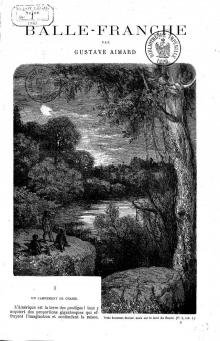 Balle-Franche. English
Balle-Franche. English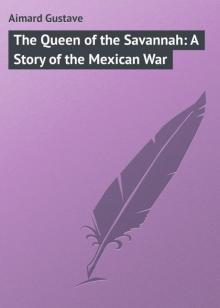 The Queen of the Savannah: A Story of the Mexican War
The Queen of the Savannah: A Story of the Mexican War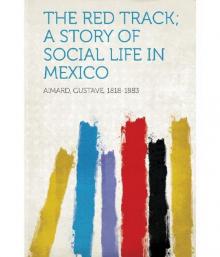 The Red Track: A Story of Social Life in Mexico
The Red Track: A Story of Social Life in Mexico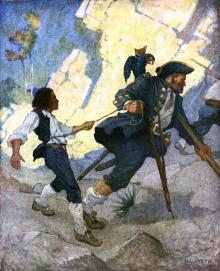 La fièvre d'or. English
La fièvre d'or. English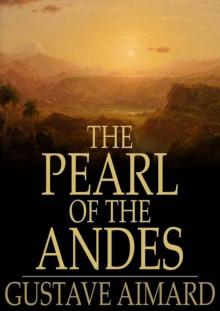 The Pearl of the Andes: A Tale of Love and Adventure
The Pearl of the Andes: A Tale of Love and Adventure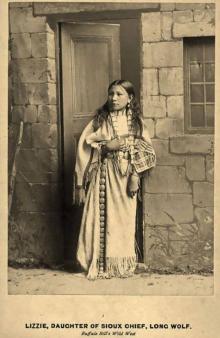 Les fils de la tortue. English
Les fils de la tortue. English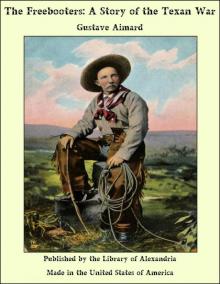 The Indian Chief: The Story of a Revolution
The Indian Chief: The Story of a Revolution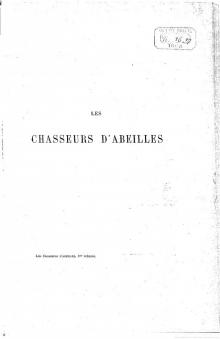 Les chasseurs d'abeilles. English
Les chasseurs d'abeilles. English The Adventurers
The Adventurers